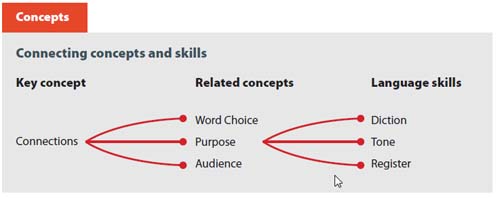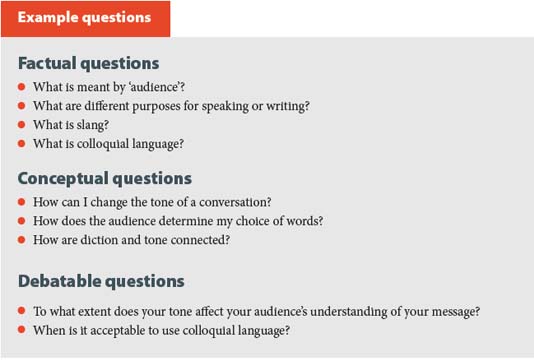Building inquiry in MYP English

Using the MYP framework to develop English language and inquiry skills
By Alexei Gafan
Can language skill levels limit a student’s ability to engage with conceptual learning? Can you truly cover the global contexts without sacrificing time dearly needed to develop language skills? These are questions I often hear from MYP teachers. So how can we effectively blend language and conceptual learning?
Try not to see MYP English language acquisition as a binary struggle between either teaching concepts and contexts or teaching language skills. The MYP framework drives learning through topics that are familiar and meaningful to students, giving us a springboard to develop both language and conceptual understanding.
Concepts: finding focus and depth
The key and related concepts drive inquiry-based learning; think about these as providing the focus and depth in each lesson. While the global contexts center learning on a topic that is meaningful for students, the key concept provides the conceptual focus. And the more you narrow your focus down to the one specific concept you want students to understand well, the more your unit will seamlessly integrate both the concept and topic.
For example, if your phase 4 students need to learn about diction, tone and register, try a unit related to Connections, looking at the relationships between text, creator and audience. This enables students to acquire language skills while developing a conceptual understanding of how a writer creates a text and uses diction to develop tone and register that is appropriate for the audience.
Use the related concepts to bring more depth into the unit. Because the key concepts are fairly broad, use the related concepts to bring in more specific focus, that helps students make sense of the key concept. For example, in this case, students might need to focus specifically on word choice, purpose and audience.

Global contexts: explore meaningful issues
Think about global contexts as broad topics that allow you to explore issues that are relevant and meaningful to your students. They give students the context in which they can acquire language.
For example, a unit on Personal and Cultural Expression that considers slang and colloquial language could focus on how word choice is connected to audience and purpose. You could construct a statement of inquiry that would look something like:
“Slang and colloquial language create a strong connection between the speaker or writer and the audience, through the deliberate choice of words, in order to achieve a specific purpose.”
Statement of inquiry
Questions that drive inquiry
The factual, conceptual and debatable questions guide students’ understanding of the MYP concepts. Start with very specific factual questions at the beginning of a unit. This is where you can teach about diction, tone and register – students won’t develop deeper conceptual understanding if they haven’t mastered the basics.
The conceptual questions should then challenge students to use the facts they have learned in a new context. These can be followed by debatable questions that will link directly to the statement of inquiry and will provide the highest levels of challenge. Answers to the debatable questions could be a mini-essay or interactive oral - like a role play or skit - enabling students to demonstrate deep understanding.
Students should use the language skills they acquire to produce an authentic response to a question. The factual, conceptual and debatable questions provide a framework of inquiry that can help your students learn and master facts and skills, and demonstrate this mastery through understanding of the concepts studied. Through this inquiry-based approach, students create meaning and come to their own conclusions, using the language they have acquired to express their learning and understanding.
More support
Build advanced English language skills
Develop confident MYP English language learners who are ready to progress
Search results
No results were found© 2024 Oxford University Press. All rights reserved.


